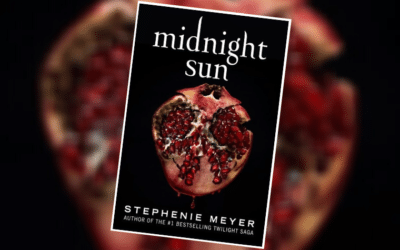Welcome back to the series I write where I talk about how bad I’m failing I’m doing with my New Year’s Resolutions. This year I resolved to Get My Financial House in Order. Here’s how it’s going and some financial resources, financial podcasts and apps I’m using to figure it out:
Also: Money allows me to save for the future, dream about the future and make big life plans.
I’m a 34-almost-35 year old non-married, childless woman. So that means that, in addition to getting a lot of ads served on Facebook and Instagram for egg freezing, my financial situation looks different than a lot of mid-thirties friends and family I know with partners and kids. I’ve got way more money than some and way less than some others. And while I made some smart decisions in my twenties and early thirties, I also made some DUMB Financial decisions. So as I enter this stage of life (The “if you get pregnant now, you will most definitely be called “Geriatric” by every doctor” stage), I’m trying to understand my own financial wellness, what I value, what I envision for that future future.
I started working with a financial advisor last year, and the first question she asked me was: “What are your money goals? What do you want your money to DO for you?” I told her I’d like my money to plant a money tree and keep growing money, but since that wasn’t an answer she was fond of, I’ve started really thinking about it. And here is what I’ve discovered: I don’t have a set retirement age I dream of. I like my job. I hope I’m not working the grind like I am these days 30 years from now, but I love owning my own business and I hope I still do way into the future. I like to travel. I want to not worry about retirement.

Me, not worrying about retirement, traveling with my “office” on my back *ps not really me
And as I’ve thought and researched (aka listened to a lot of financial podcasts) I’ve realized this: I want Financial Independence. I don’t want to depend on one source for my income. I want to diversify. I don’t want to be beholden to an office and a 9-5 job. Some people find comfort in that career. You can move up. You get promoted. You have a 401k match. You get a nice HSA option in addition to affordable health care. It’s tempting, but it’s not for me. (I like the “How much will my next paycheck be, oh god I hope that client renews their contract, wait, how much is single-payer health care going to cost me,” lifestyle. Because of the freedom.)
So that’s what I’m building towards. I’ve discovered there’s a whole movement, a whole community of FI or FIRE achievers (Financial Independent, Retire Early). They are people who are considered “retired” in that they live off their investments and side hustles. They aren’t locked down in the 9-5. I don’t envision my life on a Costa Rican beach while I live off my bit coin investments, but I would love to have a diversified financial life so that I’m not dependent on the paycheck I have coming in. If an opportunity to hire a kick ass team member means I need to pay myself less to justify the new expense, I’ll be able to afford it. That’s what Financial Independence means to me.
And I have no idea how to get there.
But I’m trying to learn.
So here are the Bekah’s Resources to Gain Financial Independence, like a normal person, not using bitcoin.
Real Estate Investment

You’re laughing because I said “normal” person and normal people don’t invest in real estate. But, actually they do. As I’ve looked into this option and talked about it openly, I’ve found I have a bunch of friends who own a house they rent out. Or they rent the condo they bought when they were 23 and got a little inheritance from a passing grandparent. (Or were just much, much better at saving than I was).
And real estate investment is an option I’m looking at. And while I do, I’m learning a ton- like I have spreadsheets for DAYS ton. I measure cap rates of everything I see. Then the Cash on Cash returns. And a bunch of other calculations that I’m still not 100% on the definitions of, but that seem important.
And I found Afford Anything, the podcast. I’ve learned so much by listening to Paula Pant. And she doesn’t just talk about Real Estate investing. She talks about financial issues as a whole. Download and start listening to her podcast immediately if you’re serious about getting your financial house in order!
Financial Podcasts
I love podcasts, and financial podcasts are a new exploration. Besides Afford Anything: Here are a few I love:
The Stacking Benjamins Show:
It’s weird. There are jokes I don’t really understand because I’m a new listener (are they really recording in “Joe’s mom’s basement?” Who is Doug?), but they are funny, easy to listen to, have great advice and I’ve learned a lot. Sometimes things are a bit over my head (Again— I need a primer on why I “should” have a high deductible + HSA insurance plan, but apparently that’s very recommended) but overall, this is a great podcast for a “normal” person trying to do finances right!
The Side Hustle Show:
This is an awesome show where the host interviews people about their side hustles. Many of which have become full time hustles or part time work full time money. It’s encouraging, fascinating and inspiring!
Planet Money:
This isn’t a personal finance podcast, but just a good podcast about money and business overall from our pals at NPR.
The Indicator:
From the Planet Money team, The Indicator is a short daily podcast focused on one number, percentage or data point in the news. It’s awesome.
Online tools
Watching and learning more about money means tracking your money is more important than ever, and I LOVE a good app. Here are my favorites:
Mint.com
Everyone knows about Mint.com by now and I’ve used it for years. It is the best overall resource I’ve found for tracking and to get a good picture of your money, income and debts.
Pros:
- It’s by Intuit so it works with every financial company out there
- It’s Easy to use
- They have a ton of categories already set up for you
- It has budgeting
Cons:
- The budgeting feature is limited. I actually HATE their budgeting portion but I haven’t found a better solution. I use the budgeting categories and actually pull them into a spreadsheet where I actually keep my REAL budget on a monthly basis.
- You can get TOO detailed. Do you really need to know if you spent $10 on Coffee, at Fast Food, or at a bar? Or could “restaurant” suffice? I put all my food expenditures into Restaurants or Groceries but I could really throw all in food and dining for the time every month I’m depressed when I look at that expenditure (which is my highest. Yes, I said highest. More than housing)
Clarity Money:
Clarity Money is an app that is basically has the reverse PROs and CONs from Mint.com. It’s not detailed enough, but really gives you a high level overview of your money and spending. It has pretty graphs.
It also does quick calculations so if I want to know how much I spent at my local coffee shop so far this month, that data is right there:

(Fact: I’ve spent $71.84. Someone has a problem . That someone is me)
Status Money
Status Money is a web app that helps you compare yourself to your peers, people your age, those in your area, in your income range and the National average.
So for example:

This graph shows me how I compare to my peers (age, income level) and national average in my last 6 months restaurant spending. I spent 9%, while my peers spent 8% and National average is that 7% of overall spending.
Good to know. I eat out too much
It’s a great app for tracking net worth, debts, assets and comparing yourself to others, without asking your Group Chat what each person makes!
I’m on a journey. I currently have 4 new windows with resources open on my computer that I hope to get to read soon. Until then… I’m still searching for the perfect resource, perfect app and process to keep me on the path of working from that beach in the Caribbean, checking my bitcoin account and HSA balance, wondering if I’ll ever understand how either one works!




